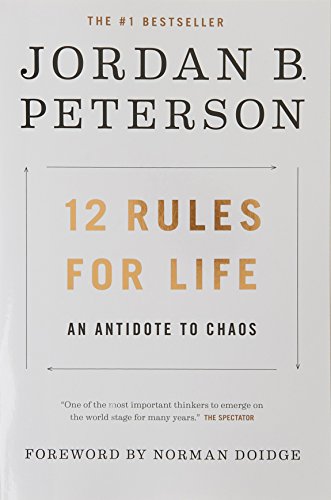12 Rules for Life: An Antidote to Chaos
Synopsis
A RELIGIOUS PROBLEM
\nIt does not seem reasonable to describe the young man who shot twenty children and six staff members at Sandy Hook Elementary School in Newtown, Connecticut, in 2012 as a religious person. This is equally true for the Colorado theatre gunman and the Columbine High School killers. But these murderous individuals had a problem with reality that existed at a religious depth. As one of the members of the Columbine duo wrote:\\n"The human race isn’t worth fighting for, only worth killing. Give the Earth back to the animals. They deserve it infinitely more than we do. Nothing means anything anymore."\\nPeople who think such things view Being itself as inequitable and harsh to the point of corruption, and human Being, in particular, as contemptible. They appoint themselves supreme adjudicators of reality and find it wanting. They are the ultimate critics. The deeply cynical writer continues:\\n"If you recall your history, the Nazis came up with a 'final solution' to the Jewish problem. . . . Kill them all. Well, in case you haven’t figured it out, I say 'KILL MANKIND.' No one should survive."\\nFor such individuals, the world of experience is insufficient and evil—so to hell with everything!\\nWhat is happening when someone comes to think in this manner? A great German play, Faust: A Tragedy, written by Johann Wolfgang von Goethe, addresses that issue. The play’s main character, a scholar named Heinrich Faust, trades his immortal soul to the devil, Mephistopheles. In return, he receives whatever he desires while still alive on Earth. In Goethe’s play, Mephistopheles is the eternal adversary of Being. He has a central, defining credo:\\n"I am the spirit who negates
\nand rightly so, for all that comes to be
\ndeserves to perish, wretchedly.
\nIt were better nothing would begin!
\nThus everything that your terms sin,
\ndestruction, evil represent—
\nthat is my proper element."\\nGoethe considered this hateful sentiment so important—so key to the central element of vengeful human destructiveness—that he had Mephistopheles say it a second time, phrased somewhat differently, in Part II of the play, written many years later.\\nPeople think often in the Mephistophelean manner, although they seldom act upon their thoughts as brutally as the mass murderers of school, college and theatre. Whenever we experience injustice, real or imagined; whenever we encounter tragedy or fall prey to the machinations of others; whenever we experience the horror and pain of our own apparently arbitrary limitations—the temptation to question Being and then to curse it rises foully from the darkness. Why must innocent people suffer so terribly? What kind of bloody, horrible planet is this, anyway?\\nLife is in truth very hard. Everyone is destined for pain and slated for destruction. Sometimes suffering is clearly the result of a personal fault such as willful blindness, poor decision-making or malevolence. In such cases, when it appears to be self-inflicted, it may even seem just. People get what they deserve, you might contend. That’s cold comfort, however, even when true. Sometimes, if those who are suffering changed their behaviour, then their lives would unfold less tragically. But human control is limited. Susceptibility to despair, disease, aging and death is universal. In the final analysis, we do not appear to be the architects of our own fragility. Whose fault is it, then?\\nPeople who are very ill (or, worse, who have a sick child) will inevitably find themselves asking this question, whether they are religious believers or not. The same is true of someone who finds his shirtsleeve caught in the gears of a giant bureaucracy—who is suffering through a tax audit, or fighting an interminable lawsuit or divorce. And it’s not only the obviously suffering who are tormented by the need to blame someone or something for the intolerable state of their Being. At the height of his fame, influence and creative power, for example, the towering Leo Tolstoy himself be
Publisher:
Random House LCC US
Date Published:
2018-03-12
